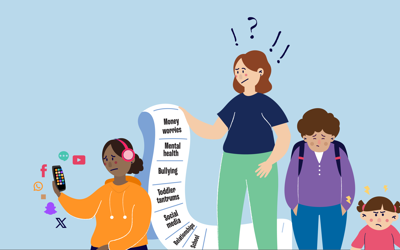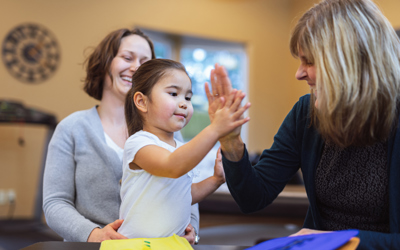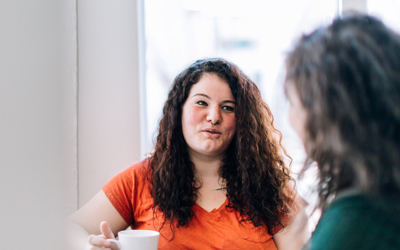Family Group Decision Making
Where families experience challenging times, family group decision making is a way of helping to try and keep children together with their families. Family group decision making helps children and families have a say in important decisions that are being made about them.
This page is to help families understand more about family group decision making. If you are a professional looking for more information about the family group decision making model, to undertake accredited training or for research about how family group decision making improves outcomes for families please visit our family group decision making pages for professionals.
All families have a right to be involved in decisions being made about them. Family group decision making originally come from New Zealand, but it is now known across the world as a way for children and families’ voices to be heard in decision-making. Children First have been helping families in Scotland have their say in important decisions about their children, through family group decision making for over 20 years

How family group decision making can help
Family group decision making:
- Keeps the focus on the future
- Concentrates on your family’s strengths
- Is blame-free
- Encourages you to have your say in decisions about your child
- Makes sure your child’s voice is heard in decisions
- Explores what support is available to your child in their family and community
- Helps you make a unique plan to keep your child safe and well
- Supports families, social workers and others to work better together
- Puts your human rights at its heart.
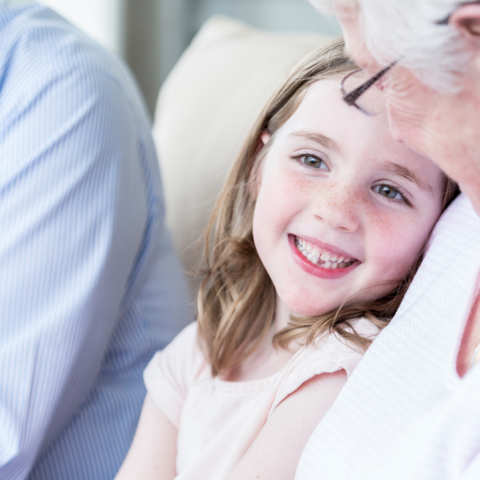
How family group decision making works
A family group decision making coordinator will work with everyone in your family to help them understand how family group decision making works and make sure everyone has a chance to take part. The family group decision making coordinator is an independent worker (who is not already involved in making decisions about your children or family). They will help you prepare for a family group meeting, where you will come up with a family plan to support your child. The plan will be decided by your family and then agreed with social work and other workers at the family group meeting. A few weeks or months after the family group meeting you will usually have a review family group meeting to check that the family plan is working.
Understanding a family group meeting
There are three parts to a family group meeting
- Information sharing: workers who know your family talk with you about the strengths that they see and their hopes for your family. They also share any worries they have and anything that they think might make your child unsafe e.g. contact with a particular person.
- Private family time: your family group are left to bring your own thoughts together and talk about the information from workers and make a family plan.
- Agreeing the family plan: your family group, coordinator and workers agree on your family's plan (as long as it is a safe plan and meets your child’s needs).
- Your family are the experts and are often the best people to make safe plans for your children.
- It offers a chance to take time out from your busy family life, to talk about what is best for your child.
- It’s an opportunity for everyone to hear and understand one another.
- It’s an opportunity for your child’s voice to be heard.
- Children say they feel special when their families come together to help them.
- It gives your family control of decision-making.
- It helps your family to find their own strengths and solutions to their problems.
- Meetings are blame-free.
- Your family decides who will be invited. Your family members will discuss and reach an agreement about who should be involved.
- Usually people are chosen who know and care about your child. This may include parents, step-parents, aunties, uncles, grandparents, next door neighbours and close family friends.
- Your family also chooses which workers you would like to invite to the meeting – usually those people who can help with information, advice or support.
- If a professional worker has suggested a Family Group Meeting then they would normally be invited to attend. This is particularly true when a social worker has requested a Family Group Meeting because they are worried that your child is at risk of harm.
The meeting is organised by a coordinator, whose job is to make sure that the family group meeting runs smoothly.
The coordinator is independent. That means that they will not already be involved in supporting or making decisions about your child or family.
The coordinator will work with your child, you and other parents or carers to plan the family group meeting.
This will include talking about:
- who you want to invite
- what you want to say at the meeting
- where and when the meeting should be
- what food and drinks there will be
- what needs to happen to make the meeting safe and comfortable for everyone.
The coordinator will visit everyone who has been invited to help them understand how the meeting will work, how to have their say and ensure everyone feels respected and included.
Children and young people usually take part in their Family Group Meeting. Their thoughts and feelings are very important when decisions are being made about them.
The coordinator will offer your child or young person the chance to have someone to help them with their family group meeting. This person is sometimes known as an advocate or meetings buddy.
Adults are also allowed to have an advocate or meetings buddy.
Your family decide if anyone else should receive a copy of the family plan.
Your family and workers will work together to put the plan into action.
The coordinator arranges a review meeting, usually a few weeks to a few months after the original family group meeting
The review meeting lets your family come together to:
- celebrate what has worked
- make sure everyone is still following the plan
- make tweaks and changes to the plan
- add new parts to the plan.
If anyone is worried that the plan is not working, or if there is a family crisis, they can ask the coordinator to organise a review meeting as soon as possible.
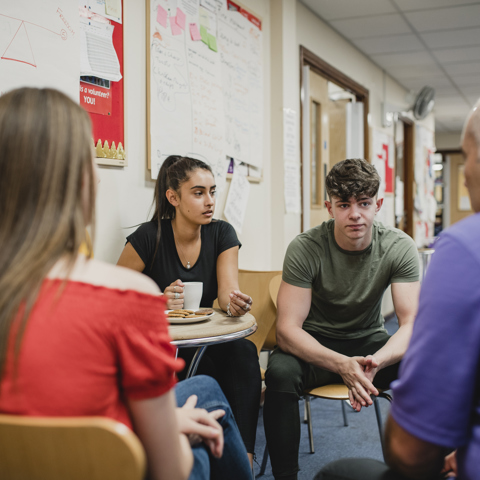
Find out more about family group decision making
Useful information for you to download and print:
For more information about whether our Children First family group decision making service can support your family please email cfs@childrenfirst.org.uk

